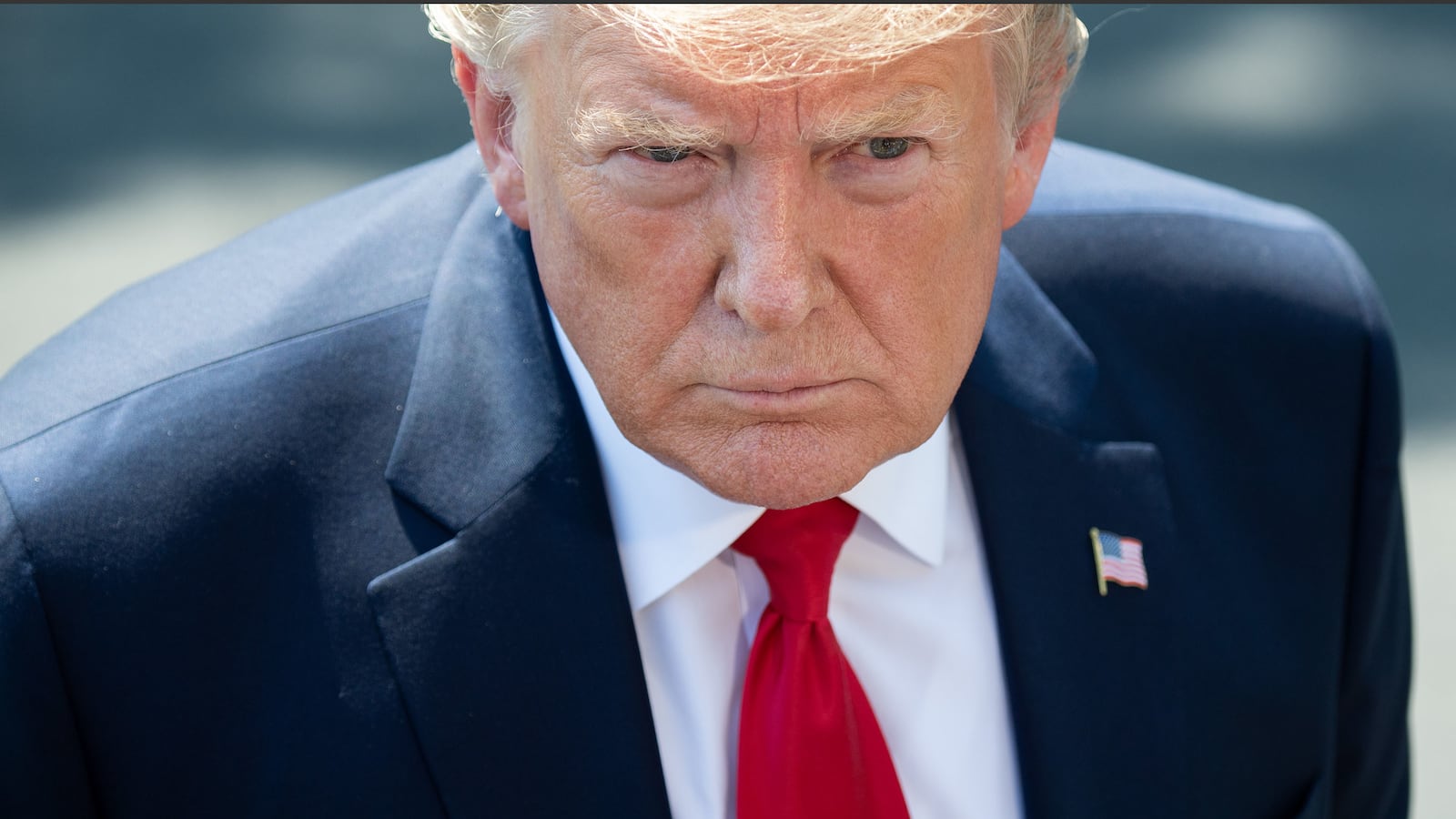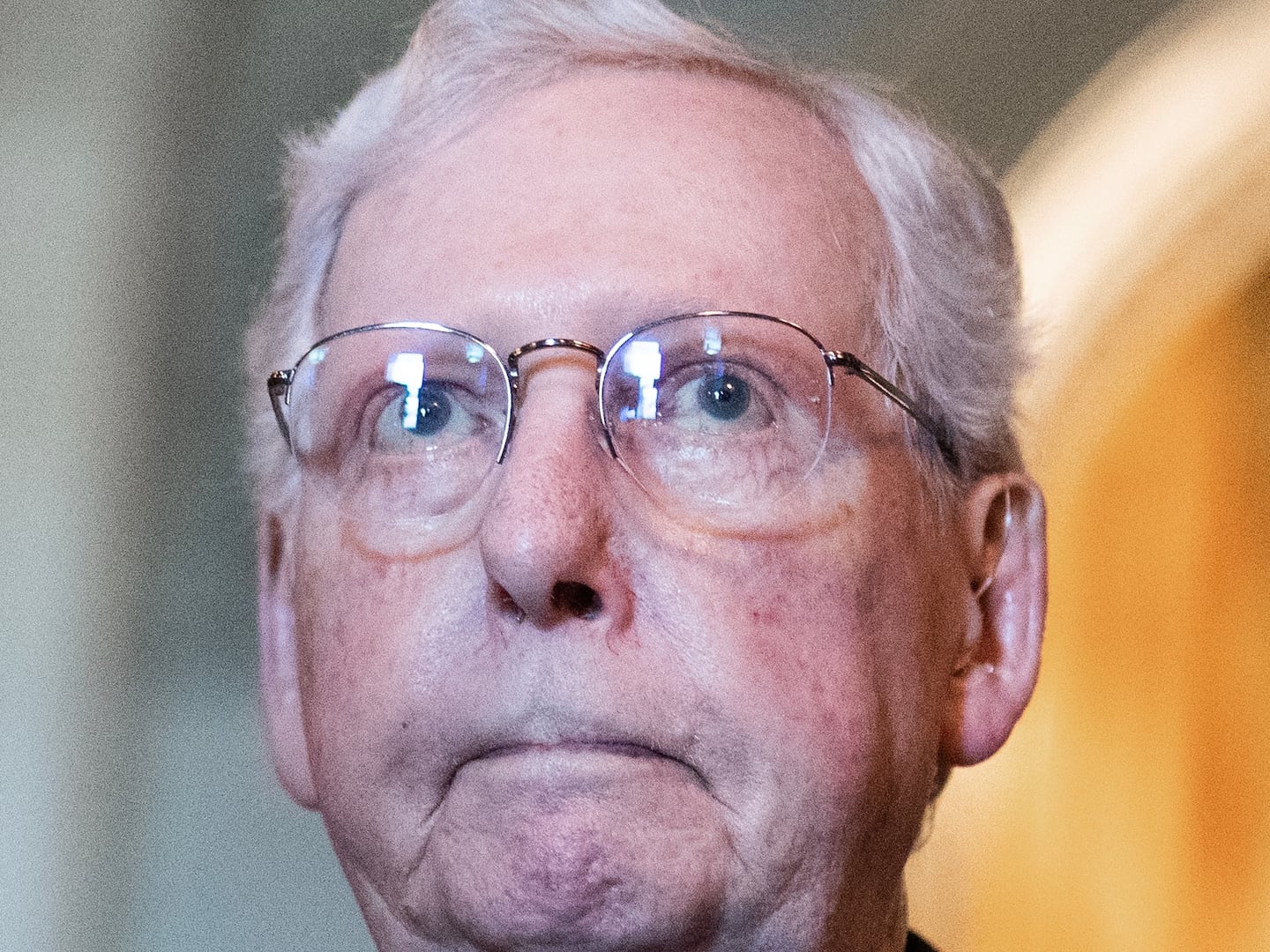In the words of the great Florence Welch, the dog days are over. Here it is the beginning of August, usually a time that the headlines turn to stories of frying eggs on the sidewalk (now easier than ever!), and real headlines are being made. It might even be that American history is being written.
A majority of House Democrats now support an impeachment inquiry into the crimes of Donald Trump. The will of the caucus has tipped, and with it may—eventually—come the Trump presidency.
Not yet, though. Decisions Democrats make in the weeks after they return from recess will determine next steps and whether whatever process ensues will be seen as a step toward justice being done or as a partisan political fiasco.
The surge in congressional Democratic support for impeachment does make several things clear. First, Washington’s punditocracy was wrong once again to declare last week’s Mueller hearings a “disaster” for the Democrats, and impeachment a dead letter because Robert Mueller wasn’t telegenic enough for the blow-dried, always camera-ready crowd.
Here we are, days later, and apparently the pundits missed something: Facts matter.
Mueller conducted a thorough investigation and, as he promised, he let his report speak for itself. In just a few critical exchanges—especially those with Judiciary Committee Chairman Jerold Nadler and Intelligence Committee Chairman Adam Schiff—it became crystal clear that the Mueller investigation in no way exonerated President Trump, but rather had accumulated so much evidence against him showing that there was in fact, an unmistakable constitutional obligation to begin an impeachment inquiry.
Another thing that is clear is that thoughtful public discourse on issues still matters. The tipping point in the debate about whether to pursue impeachment finally came after commentators, like Harvard Law School’s Lawrence Tribe, made the case that rather than describing the next step as full-fledged impeachment hearings that it should be framed as an impeachment inquiry—a step that does not require a formal vote on impeachment until all the evidence can be effectively accumulated and weighed.
This has a practical legal value in that it allows the House, as it did in court filings last week, to assert the strongest possible constitutional case to compel the Trump administration to honor its subpoenas. It also honors the constitutional responsibility to hold the president accountable via the impeachment process and provides the political benefits of publicly airing the case against Trump while not obligating House leaders to make a decision on a vote until the potential implications of such an action are crystal clear in the evolving context of the all-important 2020 election cycle.
The tipping point is also a response to the call to action of House Speaker Nancy Pelosi, whose reluctance to move forward on impeachment was based on a clear political calculus. She rightfully recognized it as a momentous step and one that could if entered into impulsively could backfire. So, she sought and she is now receiving the kind of mandate from her caucus such a consequential action requires. As the majority grows in the days and weeks to come, of course, this mandate will be clearer, as will be the requirement that the inquiry actually be launched.
All this presents the Speaker and the Democratic members of the House with very serious issues that must be addressed this autumn. Assuming that the majority for impeachment does grow as it has been steadily since the release of the Mueller Report, decisions will have to be made regarding the timing of the investigation, the shape of the investigation, the resources devoted to the investigation, and how to then determine the appropriate consequences called for by the process.
With regard to when the inquiry should take place, there are really three considerations. When should they begin? How long should they last? When should they wrap up?
This week, Senator Richard Blumenthal has made the point convincingly that the impeachment inquiry should begin as soon as possible to both maintain the momentum from the Mueller hearings and to show that the Congress is engaged and prioritizing this. There is an unmistakable sense that since the Democratic majority was sworn in in January that progress has been slow. A clear signal that the heat is being turned up is called for by the evidence. The inquiry could certainly have a period of fact-finding that included not only hearings but work by investigative teams. There has been grumbling that the congressional committee staffs are over-stretched to handle this. The answer must be allocating more resources to those committees. Real investigators, perhaps some of those once with the Mueller team, should be hired.
The investigation must be formulated around possible articles of impeachment. These should be carefully selected so that only those where the strongest evidence exists and the most ironclad cases made are pursued. This should not be a fishing expedition. But, having said that, the investigations are not guided by criminal law but rather by what the Congress itself deems high crimes and misdemeanors—whether these represent broken laws, violations of the president’s oath of office (including attacks on the Constitution) or betrayals of the public trust.
Bill Clinton was impeached for lying under oath. Answers submitted by Trump to the Mueller team may have been misleading. The articles of impeachment for Richard Nixon targeted obstruction of justice, abuse of power and contempt of Congress. There are cases to be made against Trump in each of these areas. There were 11 articles of impeachment presented against Andrew Johnson. They included appointing officials without the required advice and consent of the Congress, not faithfully executing the Tenure of Office Act, issuing orders with intent to violate federal law and making speeches intending to “bring into disgrace, ridicule, hatred, contempt and reproach the Congress of the United States.” The last article was for bringing disgrace and ridicule on the presidency.
Clearly, articles of impeachment that would need to be considered for Trump would include the strongest criminal cases against him: obstruction of justice as outlined by Mueller with regard to the Russia investigation and violating campaign finance laws as described in the SDNY case concerning payoffs to Stormy Daniels and Karen McDougal. Others might include charges stemming from the tax fraud violations outlined by the New York Times or financial wrongdoing discovered in a thorough investigation of his tax returns, conflicts of interest associated with his business ties and his conduct of American foreign policy, refusal to honor congressional subpoenas or to provide the Congress with materials (such as tax returns) as provided by law, and violations associated with wholesale granting of security clearances to individuals career officials recommend not receive them.
Other articles might be considered associated with failure to honor the president’s oath to preserve, protect and defend the Constitution—such as systematic and willful failure to protect the U.S. from on-going attacks by our enemies or even by inviting and defending such attacks and having his campaign team assist those who were attacking us.
Benjamin Wittes of Lawfare has made an interesting proposal that the president’s systematic racism be considered—certainly his serial human rights violations at the border, which include violations of international law and behavior in contravention of judges orders, might qualify. So too might his deliberate, politically and racially motivated mistreatment of Puerto Rico in the wake of Hurricane Maria.
Each potential article should be a line of inquiry and should involve its own investigation and hearings. These investigations might take several months to prepare. Court cases in the fall upholding the Congress’ subpoena authority and right to call witnesses will help prepare this. Then, early in 2020, the formal hearings might begin. These should open to the public and televised. This is both because the public has a right to know and because it is through such public hearings that a case will be made in the court of public opinion that might either sway potential votes in the House or ultimately, the Senate, or that might inform the views of voters considering Trump and his cronies and enablers, like Senate Majority Leader Mitch McConnell, in the 2020 elections.
While McConnell would surely prefer to block a Senate trial to remove the president, House hearings, well and substantively run, fact-based and conducted with a very high standard of proof, will daily take a toll on his resistance and require that those who would defend the president put their defense on the record for voters to evaluate.
Would such hearings therefore have a major impact on the 2020 elections? Yes. And they should. The president’s crimes should be made clear and the people will have two paths by which to hold him accountable as the year progresses, via the Congress and via the ballot box. The outcome in neither is assured which is one reason both are required.
But of course, the primary reason both are required is that the crimes have taken place and that should Trump, McConnell and Attorney General William Barr be able to intimidate the Congress into inaction, the precedent will be set that in the U.S., the chief executive is indeed above the law, a precedent which would be a fatal blow to one of the foundational principles of our democracy. Further, an impeachment investigation would send a message to each and every citizen that there are some matters that are more important than politics or the political calculus that might make them appear risky and that when called to do its duty, this Congress accepted its responsibility.
For Trump, of course, the daily revelations about his manifold abuses, crimes and deceits and those of his family, aides and enablers inside and outside the government would be as brutal as it is long overdue. Indeed for Trump, it might be that as this summer draws to a close and the Democrats in Congress gain the resolve they need to proceed as the Constitution dictates they must, that music playing for the president might be less “Hail to the Chief” and more along the lines of that of Florence and her Machine:
The dog days are over
The dog days are done
The horses are coming so you better run.







